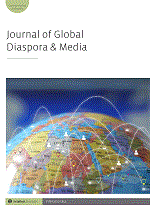
Full text loading...

Since Gopinath coined the term ‘queer diaspora’ in 2002, many studies have reconsidered diaspora studies from sexual and gender perspectives. These approaches usually leverage the concept of ‘digital diaspora’, first developed by Brinkerhoff in 2009. This proves the relevance of online spaces for these queer communities. However, several scholars suggest that queer diasporans relate to their culture of origin in rather ambiguous terms. Apparently, estrangement and uprooting are frequent, even if these features would exclude queer individuals from orthodox definitions of diaspora. This calls for a re-contextualization of queer diaspora. The goal is to provide an analytic tool for understanding how founding narratives often conceptualize queer communities under the imagery of diaspora. To support this claim, this article goes back to the reflections on community, nostalgia and futurity by Marcel Proust, Jacquelyn Fields, José Esteban Muñoz, Wen Lui and Lidia García, among others. The viability of this theoretical apparatus is tested on a corpus of tweets. Social media constitutes an exceptional site for the dissemination of LGBT+ content and the subsequent formation of queer communities. The corpus favors literature written in Spanish, but considers the coexistence of other languages, mainly English.

Article metrics loading...

Full text loading...
References


Data & Media loading...

Publication Date:
https://doi.org/10.1386/gdm_00026_1 Published content will be available immediately after check-out or when it is released in case of a pre-order. Please make sure to be logged in to see all available purchase options.